COVID-19 Pandemic Impact on Infusion Utilization
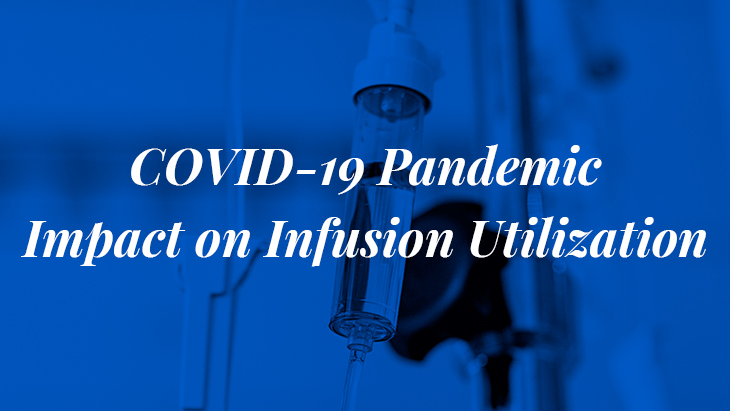
Physician office infusion centers deliver lower cost and higher adherence — even during a pandemic.
Spend on infused drugs is expected to grow by nearly 65% to $155B in 2023. Managing this growing spend will require access to cost-effective and high-quality infusion centers. Today, more than 50% of outpatient infused products are administered in hospital outpatient departments – the highest cost site of care. Unfortunately, the high cost of that care does not always result in the best outcomes. Supporting patients on infused medications in cost-effective, high-quality community settings is how Healix has delivered patient and physician peace of mind for over 30 years.
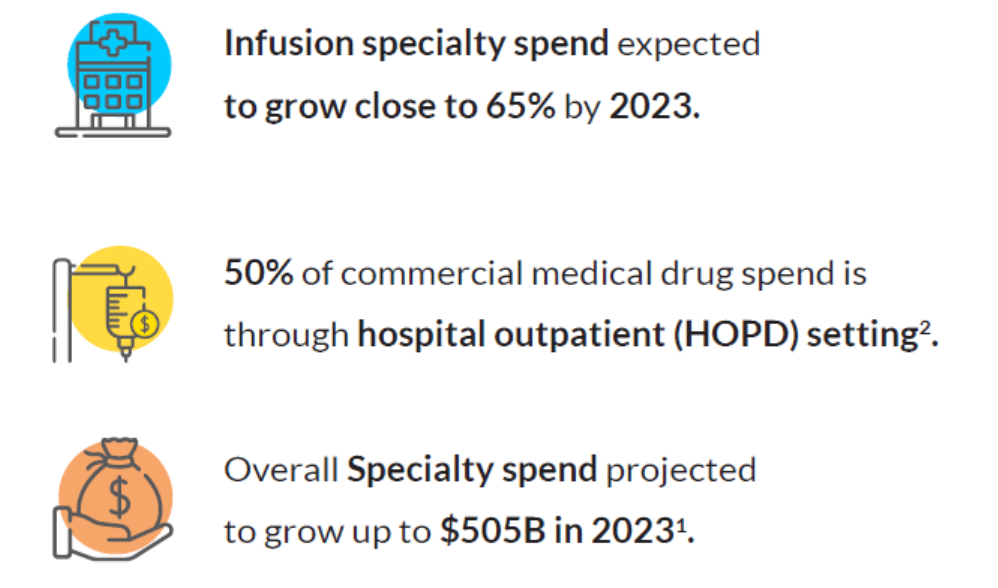
Community sites of care, such as physician offices and infusion centers, drive savings
Reimbursement3
• Drug reimbursement is twice as much in the hospital outpatient setting as compared to infusion center/physician office setting.
• Administration reimbursement is up to five times higher in the hospital outpatient setting.
Hospital Outpatient Utilization
• Acquisition of physician practices by hospitals increased by 128% since 20124, leading to a growing number of patients treated in the hospital outpatient (HOPD) settings.
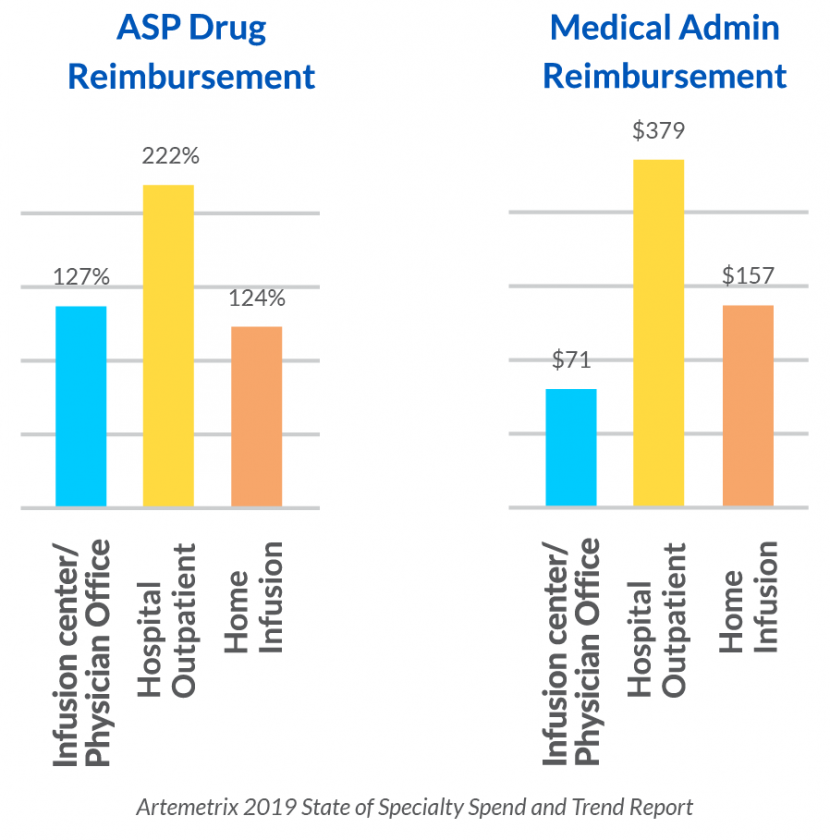
Ambulatory infusions lead to better outcomes – home infusion isn’t always the answer
Ambulatory infusion centers lead to lower costs, higher adherence, and overall better outcomes.
Ambulatory centers: lower cost – better adherence
A study published in The American Journal of Gastroenterology found that home infliximab infusions for patients with inflammatory bowel disease were associated with suboptimal outcomes including higher rates of nonadherence and discontinuation of infliximab5. Home infusions did not result in significant cost savings compared with office infusions5.
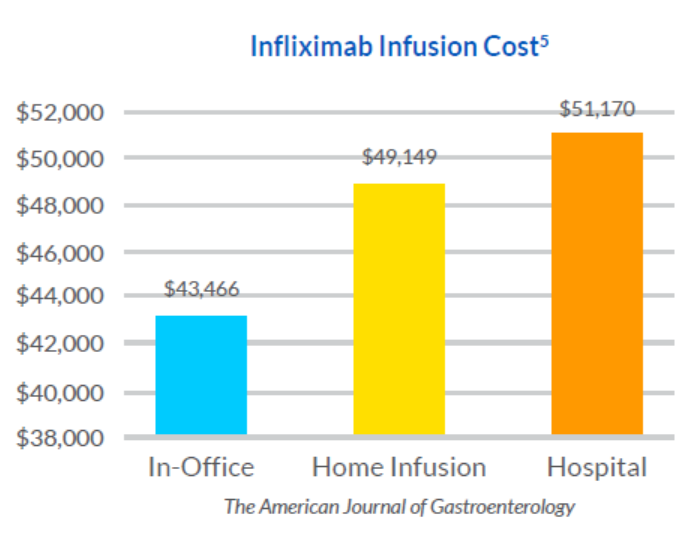
Lower Adherence: Higher Costs
An Avalere analysis found that Medicare Part B patients with a Rheumatoid Arthritis (RA) diagnosis and conditions associated with undermanaged disease have 121% higher medical costs than well-managed RA patients6.
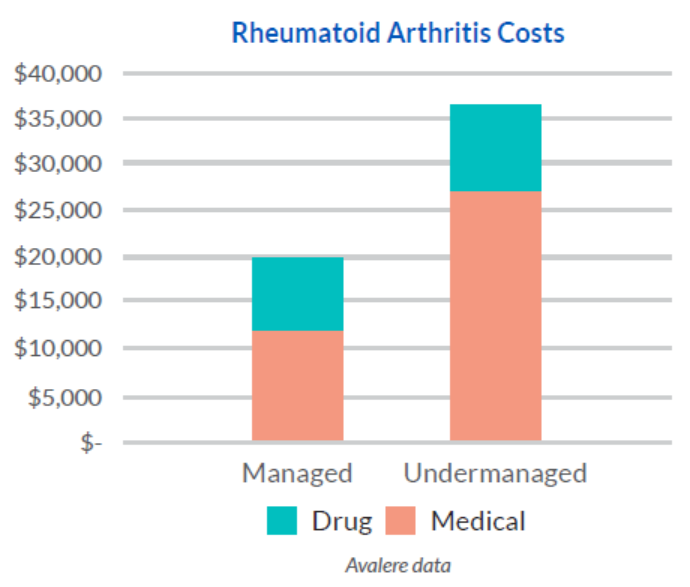
Specialty-specific considerations during the COVID-19 pandemic
Delivering patient and physician peace of mind requires a focus on patients. Making sure that patients are cared for and receive their medications has always been top of mind for Healix, and it has been critically important during the COVID-19 pandemic.
Most of the medications that are administered in Healix-managed rheumatology, gastroenterology, and neurology infusion centers are biologics that help treat the symptoms of rheumatoid arthritis and other rheumatoid diseases, inflammatory bowel disease, and other autoimmune diseases. The American College of Rheumatology (ACR), the Crohn’s and Colitis Foundation, the American College of Gastroenterology, and the American Academy of Neurology all recommend that patients remain on their biologic medications during the pandemic. Discontinuation of therapy can result in disease flare-ups, decrease medication effectiveness when the medication is restarted, and may increase emergency department visits and hospitalizations at a time when our hospital assets are critically needed to care for the sickest COVID-19 patients.
Intravenous infectious disease medications administered in Healix-managed infusion centers are used to treat moderate to severe bacterial infections. Ceasing or delaying these treatments is simply not an option.
The impact of a pandemic on adherence
Amid the COVID-19 pandemic, the stay-at-home orders, physician office closures, and hospitals re-directing or deferring routine and elective procedures has created a focus on patient adherence, safety, wellness, and access. During the pandemic, nationally, patient office visits declined as much as 60%7.
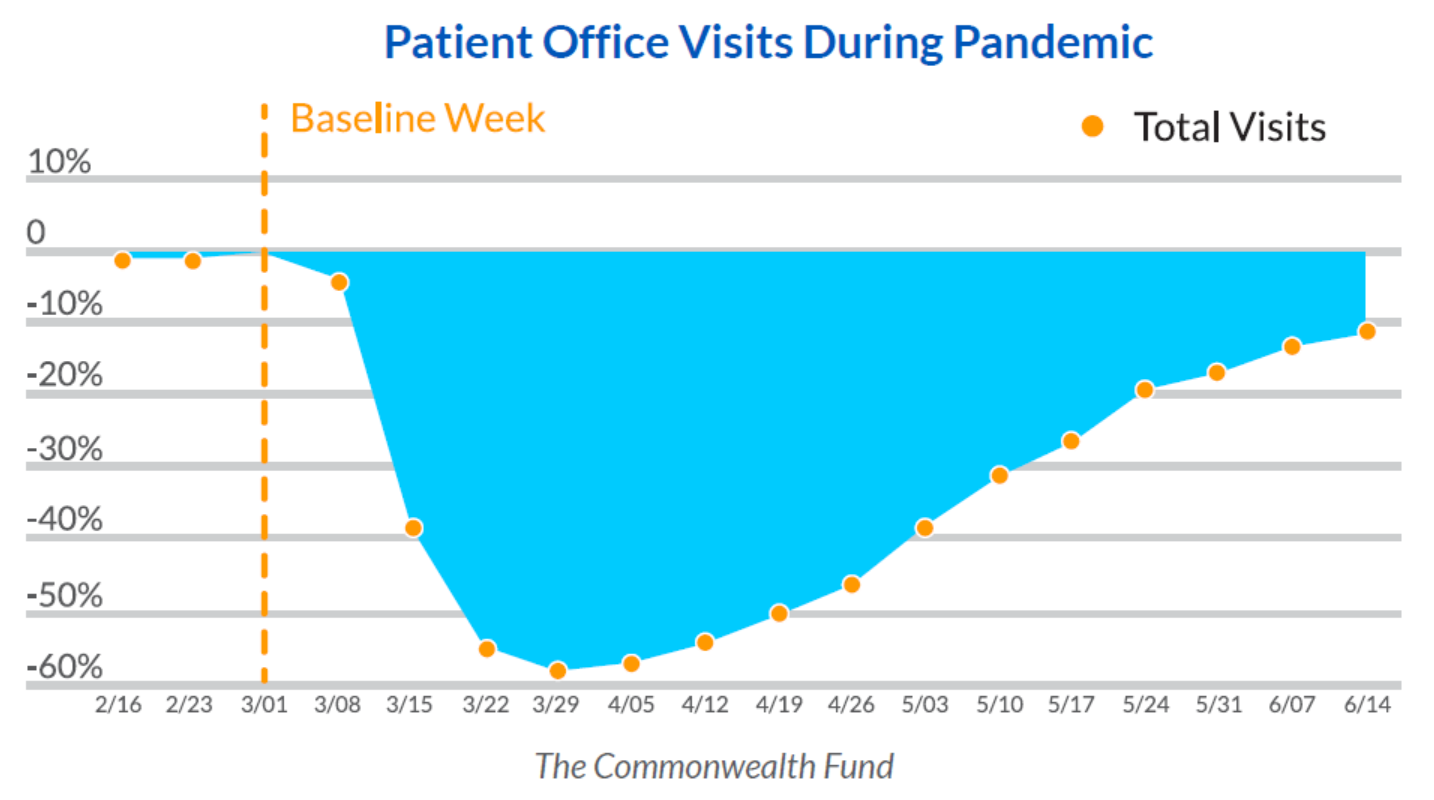
A study by Avalere found that infusion treatments for autoimmune conditions administered by Medicare providers fell by as much as 44% during the COVID-19 pandemic8. This non-adherence will undoubtedly have ripple effects on patients’ health and healthcare spend.
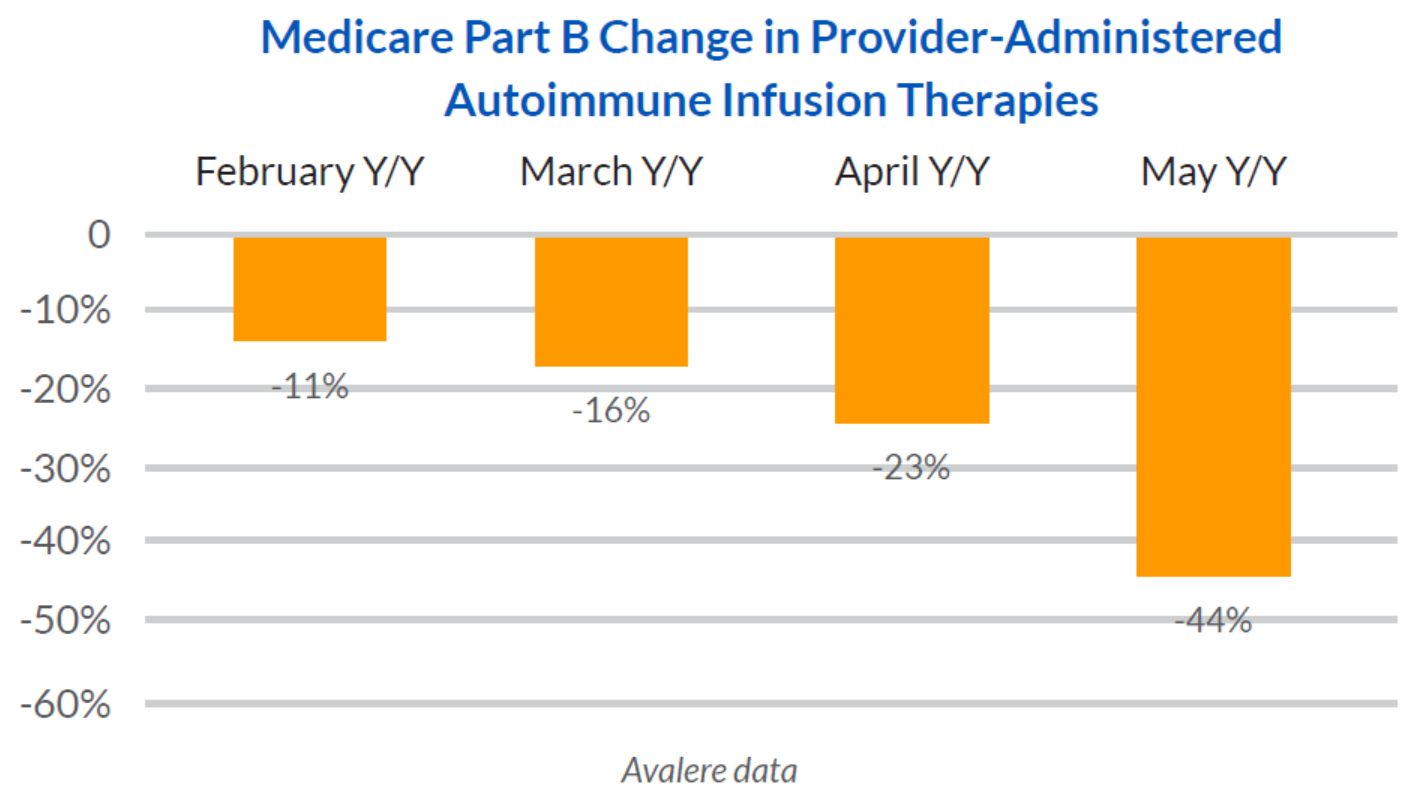
By contrast, during that period of time, Healix-managed infusion centers did not experience the same decline in treatments. In fact, treatments at Healix-managed infusion centers increased by an average of 10%9. Healix-managed infusion centers were better able to maintain existing patients on therapy while treating patients from other sites of care such as hospital outpatient facilities.
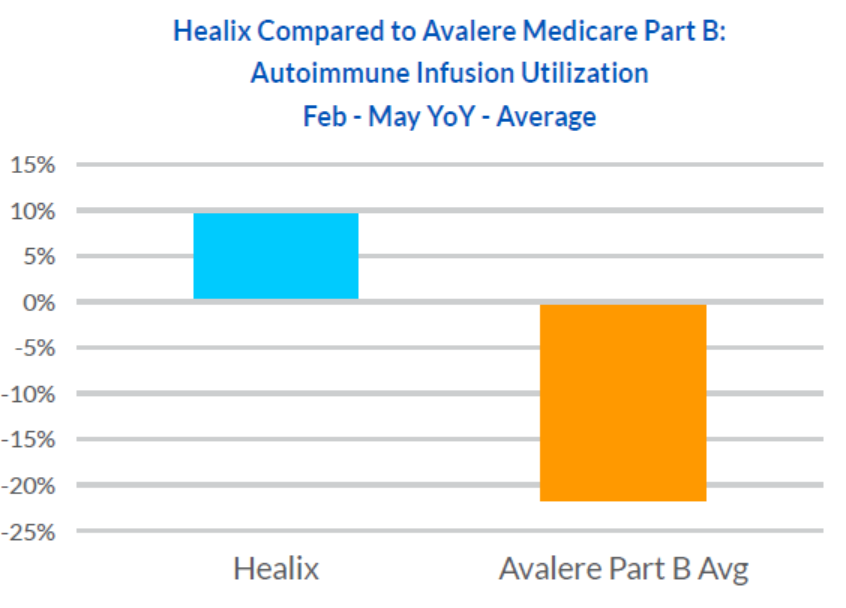
Interestingly, overall new prescription starts were down 25% compared to pre-pandemic levels10.
Conclusion
With infusion spend expected to continue to grow at unprecedented rates, cost-efficient, high-quality infusion centers are of paramount importance. Research shows that community-based, ambulatory and physician office infusion centers provide superior care as compared to both home-infusion and hospital outpatient infusion centers. Physician based infusion centers provide that high-quality care at a lower cost.
Over the past 30 years, Healix’s singular focus on physician office infusion centers has brought peace of mind to its patients and physicians. Physicians can be confident that their infusion centers are being managed well and that their patients are receiving the best possible care. Patients enjoy the community setting with a staff they know and trust, all under the care of their existing physician. Through the COVID-19 pandemic, Healix has successfully supported its physicians and their patients. Partner with Healix to bring patient and physician peace of mind to your infusion program.
Download full report
About Healix Infusion Therapy, LLC
Healix is the nation’s leader in providing physician office-based infusion services. Focused on patient and physician peace of mind for 30 years, we offer unparalleled capabilities for optimal patient care, comfort, compliance, and clinical outcomes in an outpatient setting.
References
1 “Taming the Trend Managing Costs of Specialty Pharmaceuticals for Insurers.” Pharmacy Times. March 23, 2020.
2 Medical Pharmacy Trend Report (MagellanRx 2019 10th edition)
3 Artemetrx 2019 State of Specialty Spend and Trend Report
4 https://revcycleintelligence.com/news/hospital-acquisitions-of-physician-practices-rose-128-since-2012
5 “Home Infliximab Infusions are Associated with Suboptimal Outcomes Without Cost Savings in Inflammatory Bowel Disease.”
The American Journal of Gastroenterology. July 22, 2020
6 “Patients with Undermanaged RA Have Higher Medicare Costs than Other RA Patients” Avalere April 28, 2020.
7 “The Impact of the COVID-19 Pandemic on Outpatient Visits: Practices Are Adapting to the New Normal.” The Commonwealth Fund. June 25, 2020.
8 “Access to Medicare Part B Drugs Remains Challenging During COVID-19.” Avalere. June 20, 2020.
9 Healix data includes organic growth within a physician practice, excludes newly-managed sites or closed sites within the study period
10 “Monitoring the Impact of COVID-19 on the Pharmaceutical Market.” IQVIA. September 11, 2020.
